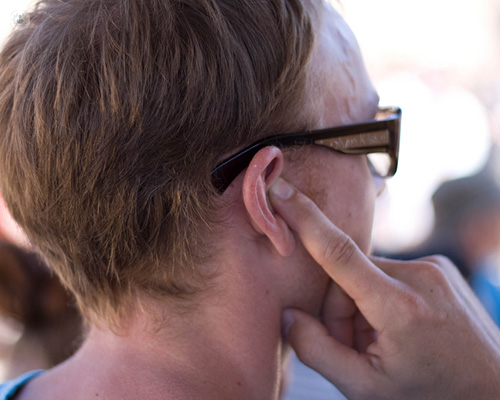

What is tinnitus?
Tinnitus refers to the hearing of noises that are not caused by an external source. Often heard has a ringing or buzzing sound, these may be heard temporarily or chronically. Often, these noises are accentuated when there is absolute silence. Tinnitus is not a condition in itself, but a symptom of an underlying condition.

What are the symptoms of tinnitus?
In addition to hearing the buzzing, ringing sounds, tinnitus can cause difficulty sleeping and concentrating. As a result, it can sometimes put a strain on someone’s psychological well-being and personal relationships, particularly if it is chronic.
What causes tinnitus?
Tinnitus is not a disease, but a symptom of other ear pathologies, such as hearing loss. Therefore, the causes that can trigger it are multiple. Common causes include:
- Hearing loss
- Exposure to loud noises
- Blockages (from a build-up of earwax)
- Meniere’s disease
- TMJ disorders
- Head or neck injuries
- Certain medications (e.g. antibiotics, aspirin and certain antidepressants)
- High blood pressure and circulatory problems
Can tinnitus be prevented?
To prevent tinnitus, it is best to keep the ear clean and free of wax. It is also important to avoid caffeine, smoking, alcohol and excessive salt intake. It is also important to avoid noisy environments. People with cardiovascular problems are at a higher risk of developing tinnitus, so ensuring you maintain a healthy blood pressure and eat a healthy diet are important.
What is the treatment for tinnitus?
Treatment will depend on the underlying cause and treating this is the first step. Often this will involve either removing excessive earwax, changing your medications for other conditions or treating a blood vessel problem. If these do not help, then there are other therapies that can help you overcome the irritation caused by the tinnitus. For example, noise suppression training involves using special devices to suppress noise (e.g. white noise machines, tinnitus retraining devices or masking devices).
In addition, managing stress, and removing irritants (e.g. alcohol, caffeine and cigarettes) can help too.
